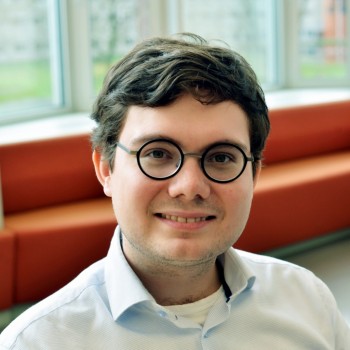Developing nuclear fusion power would create a zero-CO2 safe and continuous energy source with no long-lived radioactive waste. This is highly desirable for society, but a great challenge is to control the waste heat which arrives in the exhaust region, known as the divertor. This must be reduced to manageable levels before it reaches the wall, so that the reactor operates reliably over long timescales.Recent developments have opened a new path to power exhaust: to use a liquid metal (lithium) based wall which strongly evaporates, forming a vapour cloud in front of the wall which cools and redirects the heat, ultimately preventing any damage.
To achieve this requires the prevention of excess vapour from reaching the core of the plasma, which would reduce the power output. This can be achieved by dividing the divertor into a series of differentially pumped chambers allowing re-condensation of the vapour on the wall surfaces, known as a Vapour Box Divertor. The goal of the PhD is to investigate and validate the potential of this solution, with the aim to prepare future testing in a fusion device.
The Plasma Material Interactions group
The PMI group works to solve the challenges of power exhaust for ITER and for future fusion reactors, and also applies its expertise in extreme plasma conditions for industrial problems and novel materials processing. Our main foci are on
- Understanding the expected performance of the ITER divertor using Magnum-PSI
- Exploring new approaches for heat exhaust in fusion reactors, such as liquid metal walls
- Understanding the impact of impurities on the performance of mirrors in Extreme Ultraviolet plasma sources
Qualifications
- You have (or very soon will have) a recent Master’s degree in science and technology of nuclear fusion, physics, engineering or materials science.
- You are able to work well both independently and as part of a team in an experimental setting.
- You can produce outstanding academic results and can work with originality and high scientific quality.
- Prior experience in one or more of nuclear fusion, plasma physics, atomic physics, spectroscopy and bolometry will be considered a plus but not an essential requirement.
- You have excellent English language proficiency.
Responsibilities and tasks
The research will be carried out using DIFFER’s experimental facility Magnum-PSI, which is a globally unique linear plasma device, the only one in the world capable of producing reactor relevant heat and particle fluxes, and therefore the perfect tool to explore this approach. You will:
- Develop hypotheses and experiments to study the physics mechanisms responsible the vapour cloud shielding.
- Design and test a prototype Vapour Box Divertor and use these results to validate modelling predictions.
- Identify the optimum operational conditions to promote differential pumping and recirculation of the recondensed vapour.
- Produce and publish scientific publications and present your work at national and international conferences.
- Produce and defend a doctoral thesis at the Eindhoven University of Technology.
Additional information
For additional information on the employment conditions and the application procedure you are referred to the web page given at the end of this post. Additionally, further information is available through Dr. Thomas Morgan (t.w.morgan@differ.nl).

